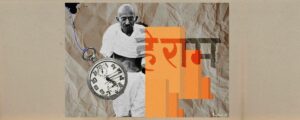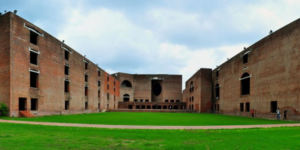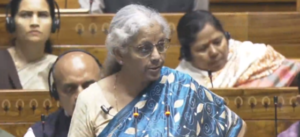In one of the severest criticisms of the Supreme Court and the government delivered by a former Supreme Court judge in recent times, Justice Rohinton F. Nariman spared no words in highlighting the breakdown of constitutional checks and human rights in this year at an address a day ago.
Delivering the Smt Bansari Sheth Endowment Lecture titled ‘Constitution: Check And Balances’, Justice Nariman noted that four “most disturbing” things have happened in the country this year itself, LiveLaw has reported.
He then went on to highlight now there were tax raids following a ban on the BBC documentary on Prime Minister Narendra Modi’s role in the 2002 Gujarat riots, how the government has replaced the Chief Justice of the Supreme Court in the committee to select the Election Commissioner/s with a minister from the government, how the Kerala governor was impeding process by sending bills to the president and how the Article 370 judgement by the Supreme Court affects federalism.
In his speech, Justice Nariman went into some detail on the constitutional scope for redress when it came to excesses.
Saying that the BBC was effectively “harassed” with the tax raids in February, Justice Nariman highlighted the role of courts in stemming the infringement of the media’s rights.
“The moment there is any onslaught on the media, the courts must be vigilant to instantly scotch it. If you find that there is some independent reporting which has led to something as a result of which there is a tax raid then for that reason alone you must say that the tax raid is illegal and unconstitutional,” he said.
He added that if “our watchdog” – media – is killed, then nothing remains.
The Modi government’s ongoing attacks on media freedom and democracy are illustrated by raids and arrests of prominent journalists. India ranks 161 out of 180 countries on the Press Freedom Index.
Justice Nariman also had heavy words for the Election Commission Bill, introduced in the parliament and since passed by the Rajya Sabha.
After the Supreme Court ordered that the Chief Election Commissioner and the ECs should be selected by a panel comprising the prime minister, Chief Justice of India and the Leader of Opposition, until the parliament enacted a law, a bill was moved to substitute the CJI by a selected cabinet minister – “most unfortunately,” according to Justice Nariman.
The resulting committee will thus consist of the Prime Minister, a cabinet minister, and the Leader of the Opposition in the Lok Sabha (or the leader of the single largest opposition party).
“If you are going to get the Chief Election Commissioner and other Election Commissioners appointed in this fashion, free and fair elections are going to become a chimera,” he said, advocating for it to be struct down by the court as “it severely imperils the independence of the working of the Election Commission.”
Commentators and politics watchers have repeatedly pointed to the EC’s favouritism of the Union government run by the Bharatiya Janata Party.
The judge also highlighted the “wholesale reference to the President,” of bills by the Kerala governor, noting that in such an event, the legislative activity of the state comes to a standstill.
“The third disturbing fact that we found this year, is a Governor of a traditionally minority government State, Kerala, sitting over bills for periods of up to 23 months. When the Supreme Court rapped him on his knuckles, what did he do? There were 8 such bills. One bill was assented to, 7 were referred to the President…” Justice Nariman said.
He added that he is looking forward to a day when only independent persons will be favoured for these roles by the Supreme Court.
“I am waiting for the day when the Supreme Court will lay down that ‘look, it is only independent functionaries who are supposed to fill these great offices. Not the kind of people that we find today, like in Kerala, where wholesale, after you slept over the bills, you just give them back to the President.”
Justice Nariman’s highlighting of the Supreme Court’s Article 370 judgment – in which it upheld the constitutional order that read down the article in Jammu and Kashmir – was most scathing. He said it had a “tremendous impact on federalism.”
The judge noted that there was a key intent behind bifurcating the state when there was already president’s rule imposted – to bypass the clause in Article 356 which says that such a rule cannot exceed one year unless there is a national emergency or the Election Commission says that elections are not possible to be held.
Under Article 356 of the constitution, if a state government is unable to function according to constitutional provisions, the Union government can take direct control of the state machinery.
Justice Nariman called the solution found by the government “ingenious”.
Significantly, he criticised the Supreme Court for skipping this key question in its decision, based on an undertaking given by the Solicitor General that statehood will be restored. “The Solicitor General does not have any authority to bind the successor government,” he noted, citing his own disavowal of such a statement in the Shreya Singhal judgment.
The judge also criticised the “nearly four years” that the decision took to arrive, noting that the move took place in 2019, which is when the petitions were filed and that there has been no democratically elected government in the region for five years.
(Courtesy: The Wire.)




